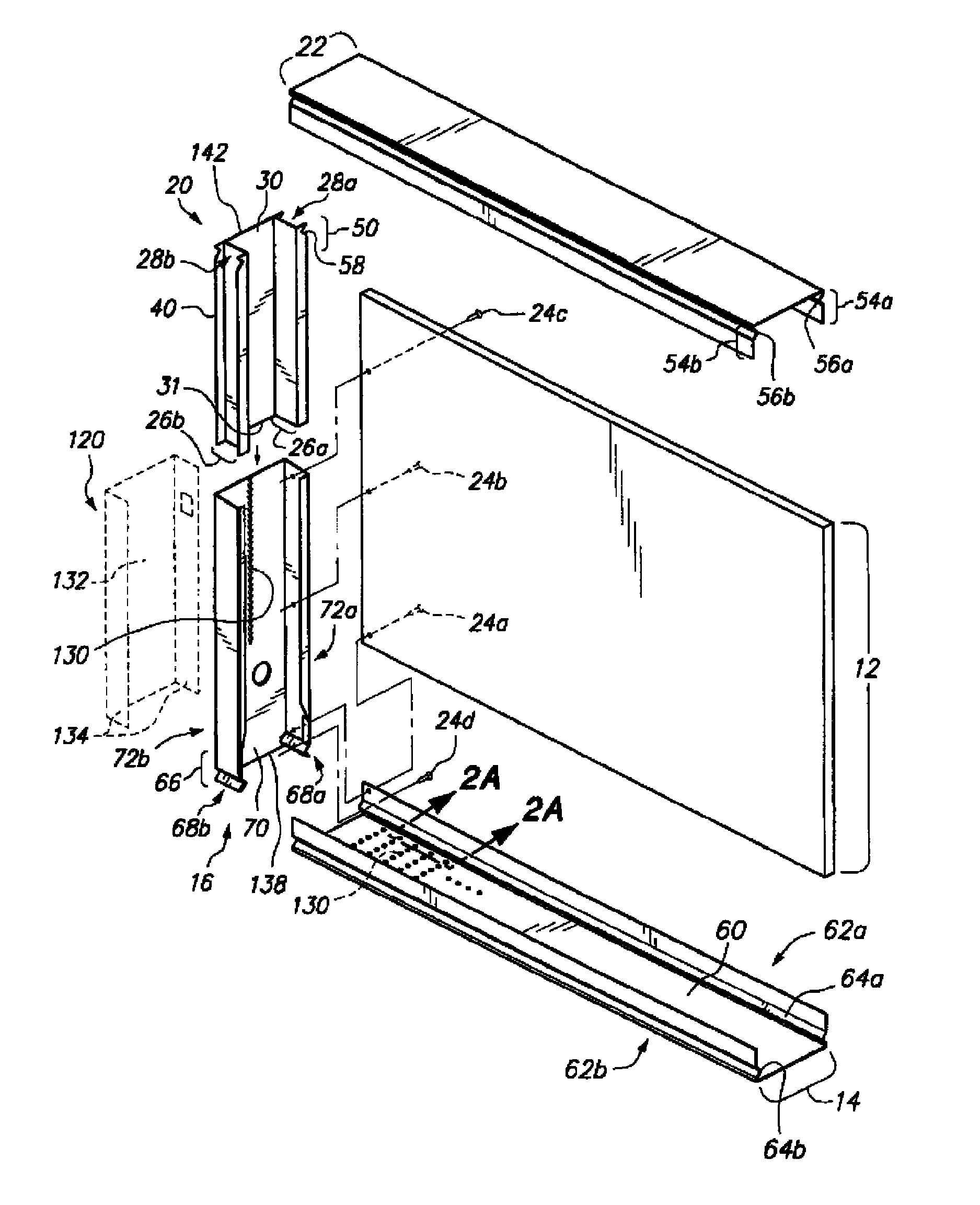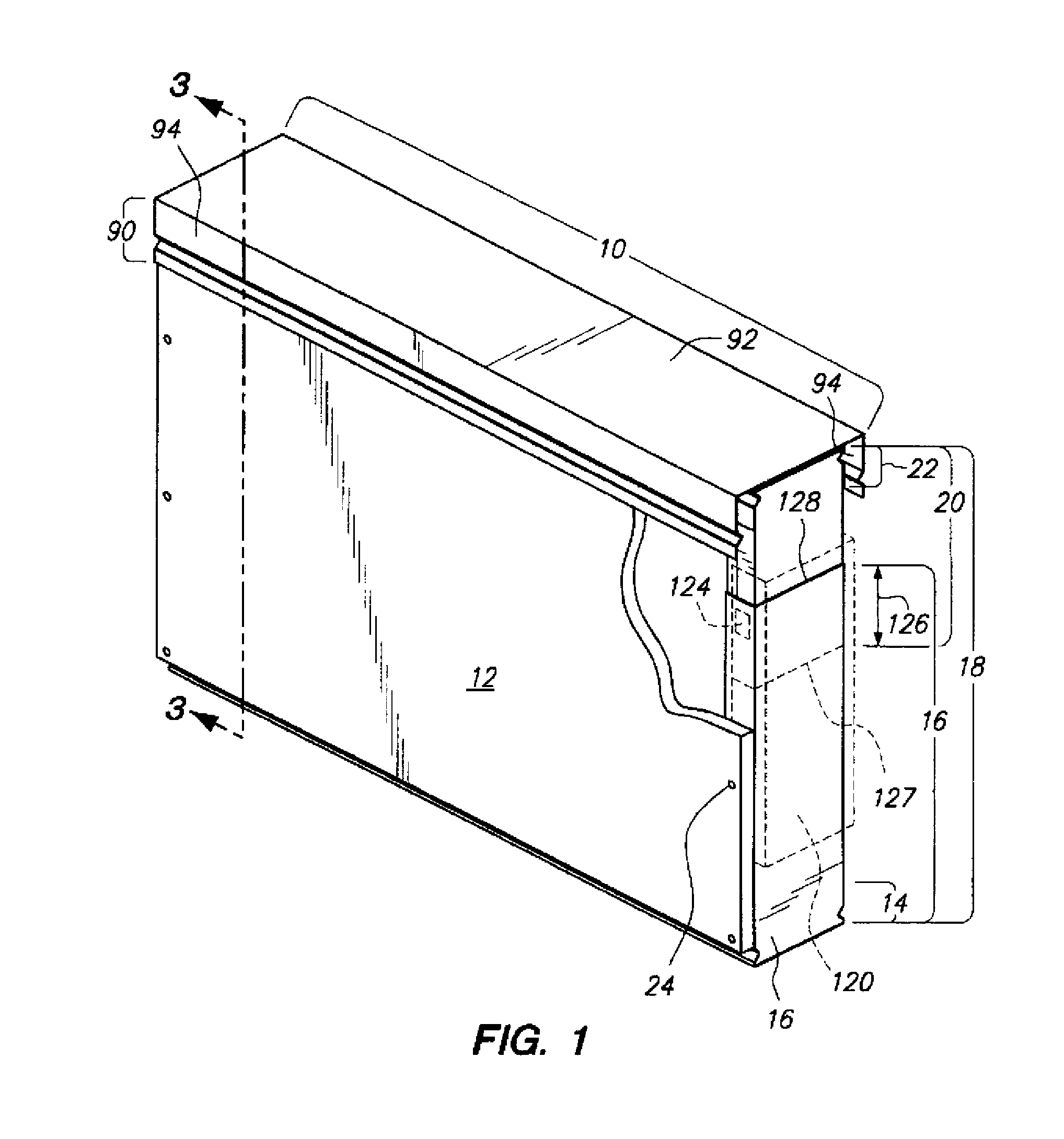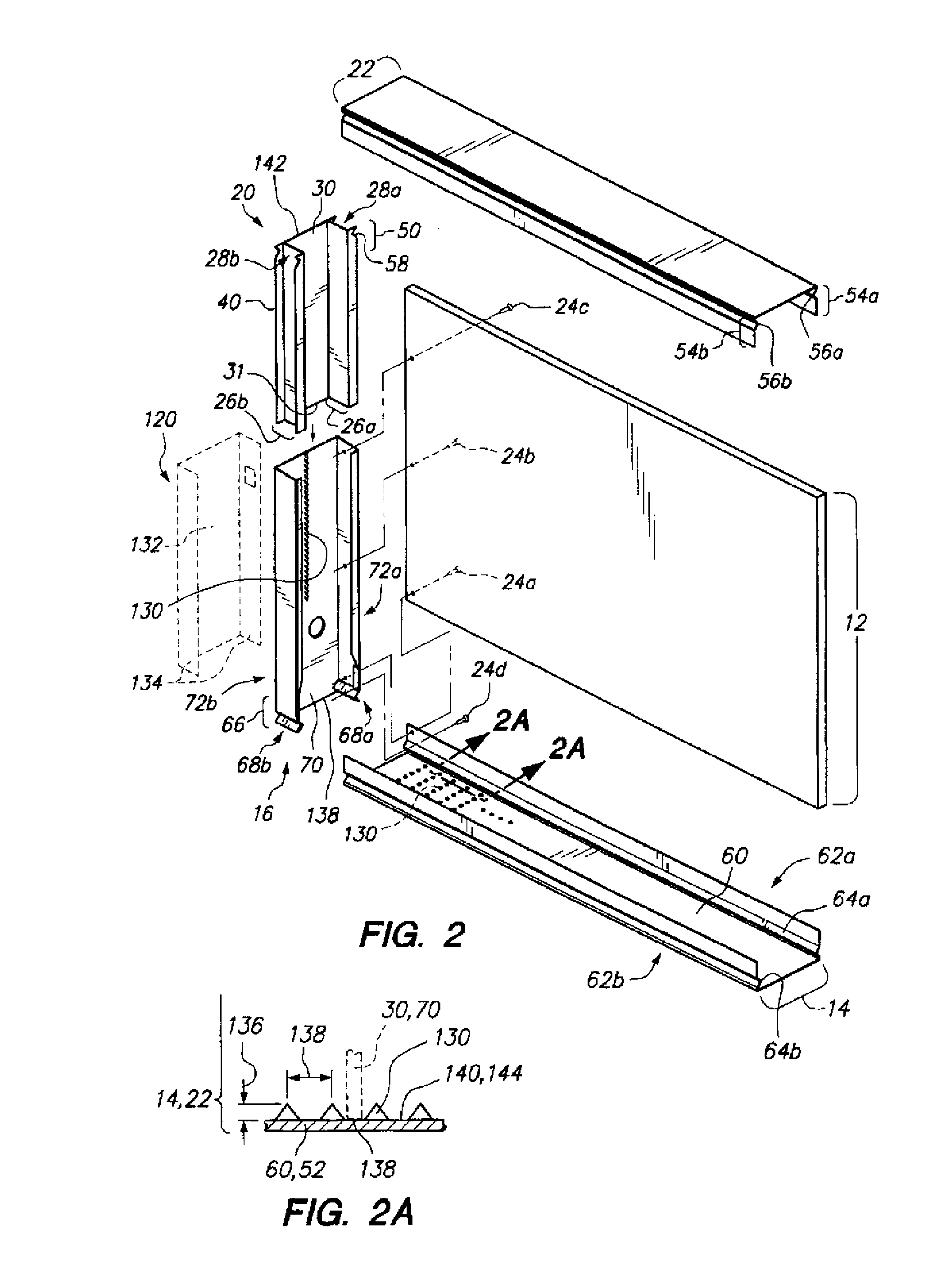Vertical deflection extension end member
a technology of end member and vertical deflection, applied in the field of vertical deflection extension end member, to achieve the effect of infinite vertical range of movemen
- Summary
- Abstract
- Description
- Claims
- Application Information
AI Technical Summary
Benefits of technology
Problems solved by technology
Method used
Image
Examples
Embodiment Construction
[0024]Referring now to FIG. 1, a wall structure 10 is shown. Drywall 12 is secured to stationary portions 16 of vertical studs 18 and not to telescoping portions 20 of the vertical studs 18. A top track 22 is attached to the telescoping portion 20 but not the drywall 12. When ceiling to floor variations occur such as during a fire, ambient temperature changes, settling of the building, earthquakes (i.e., seismic shifts, etc.), the telescoping portions 20 of the vertical studs 18 allow for variation in the ceiling to floor distance. Additionally, such construction would also mitigate detachment of the fasteners 24 from the drywall 12 due to different coefficients of thermal expansion of the drywall 12 and the material (e.g., steel) from which the vertical stud 18 is fabricated during ambient temperature changes or fire.
[0025]As shown in FIG. 2, in order to fasten the drywall 12 to the stationary portion 16 but not the telescoping portion 20, the exterior of one or both sidewalls 26a,...
PUM
 Login to View More
Login to View More Abstract
Description
Claims
Application Information
 Login to View More
Login to View More - R&D
- Intellectual Property
- Life Sciences
- Materials
- Tech Scout
- Unparalleled Data Quality
- Higher Quality Content
- 60% Fewer Hallucinations
Browse by: Latest US Patents, China's latest patents, Technical Efficacy Thesaurus, Application Domain, Technology Topic, Popular Technical Reports.
© 2025 PatSnap. All rights reserved.Legal|Privacy policy|Modern Slavery Act Transparency Statement|Sitemap|About US| Contact US: help@patsnap.com



